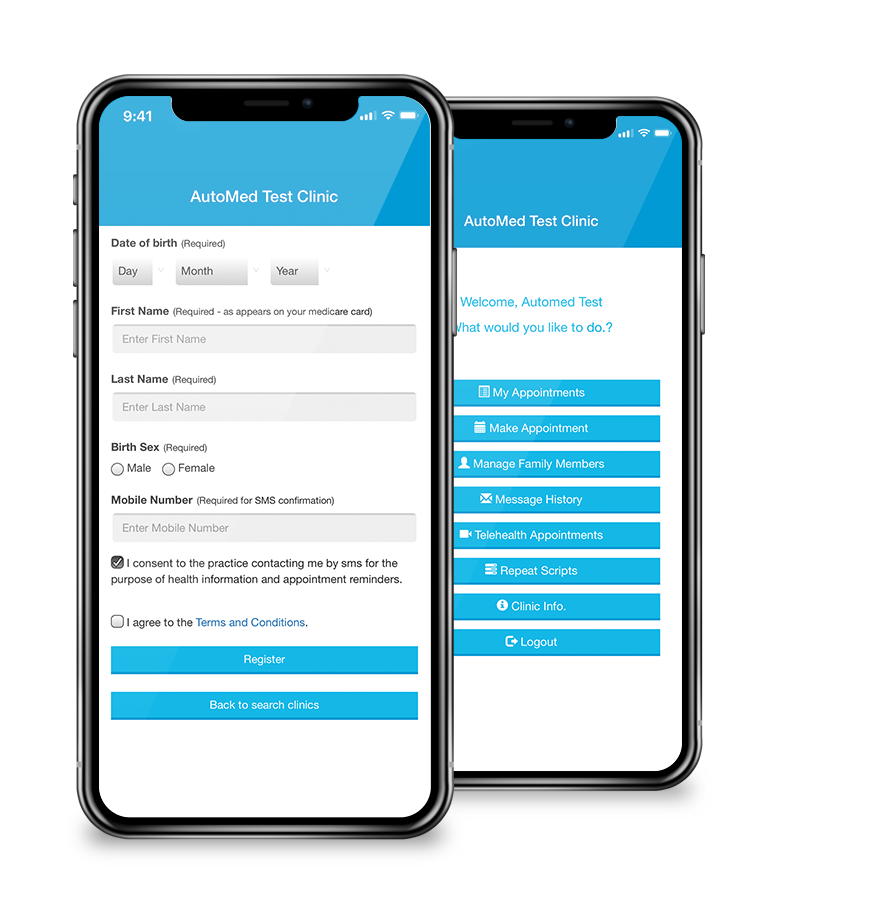A Complete Guide to Selecting the very best Mobile App for Clinics in 2024
A Complete Guide to Selecting the very best Mobile App for Clinics in 2024
Blog Article
The Future of Healthcare: Why Clinics Need a Mobile App Today
As the healthcare landscape proceeds to develop, centers deal with placing pressure to adapt to patient expectations for greater convenience and accessibility. The assimilation of mobile applications can offer as a crucial strategy for enhancing individual interaction and simplifying operations.
Changing Client Assumptions
As the landscape of healthcare progresses, patient expectations are going through a significant improvement. Today's patients are progressively looking for ease, ease of access, and individualized care.
Moreover, people are becoming more educated and empowered, often looking into conditions and therapies on-line before consultations. This increased understanding is coupled with a need for transparency in medical care processes, consisting of expense estimates and therapy choices. As a result, suppliers are urged to adjust by taking on electronic devices that enhance the patient experience.
The assumption for reliable and prompt communication has never ever been greater, with several patients considering responsiveness an essential component of top quality care. mobile app for clinics. In this developing landscape, healthcare organizations need to identify these changing assumptions and take advantage of mobile applications to promote a more patient-centric approach, making sure that they not just meet but exceed the requirements set by today's educated customers
Enhancing Patient Interaction

Mobile applications promote interaction between patients and health care providers, making it possible for real-time appointment scheduling, suggestions for drug adherence, and straight messaging functions. These capabilities not just boost convenience however also develop a sense of liability among individuals. Mobile applications can offer instructional material customized to private needs, helping patients much better comprehend their conditions and treatment options.
The integration of gamification elements within medical care applications can additionally encourage individuals to take part in healthy behaviors, reinforcing favorable lifestyle adjustments. By tracking progress and fulfilling success, individuals are more most likely to stay committed to their health objectives. Eventually, enhancing patient involvement with mobile applications results in boosted health and wellness outcomes, better client fulfillment, and a more joint health care experience. Facilities that prioritize this element will likely see a significant effect on the top quality of care supplied.
Enhancing Facility Workflow
Simplifying center procedures is important for improving workflow efficiency and enhancing individual care. The execution of mobile applications can considerably minimize management burdens, enabling medical care companies to concentrate extra on client communications. By automating appointment scheduling, client check-ins, and invoicing processes, centers can minimize wait times and improve overall functional efficiency.
Mobile apps also assist in real-time accessibility to person documents, making it possible for medical care specialists to make educated choices quickly. This immediacy not only improves the top quality of treatment yet additionally lowers the probability of mistakes related to misplaced or outdated info. Leveraging mobile modern technology supports a much more organized technique to managing patient follow-ups and therapy strategies, making certain that no important steps are overlooked.
This permits for timely replenishment and aids prevent interruptions in individual care due to equip lacks. By incorporating these functionalities into their day-to-day operations, facilities can create a much more cohesive and effective setting, eventually leading to boosted patient results and fulfillment.
Improving Interaction Networks
Efficient communication is often pointed out as a cornerstone of high quality health care distribution. In today's busy clinical setting, mobile applications can considerably improve interaction channels in between centers, clients, and health care suppliers. By incorporating mobile apps into their operations, centers can assist in real-time communications, guaranteeing that individuals obtain prompt info concerning their visits, examination results, and treatment strategies.
Mobile apps my sources additionally empower individuals to connect directly with their healthcare teams through secure messaging features. This direct line of communication fosters a feeling of interaction and enables for immediate information of concerns, which can lead to better adherence to therapy methods. Moreover, press notifications can advise patients of upcoming consultations or medicine schedules, minimizing no-show click now prices and enhancing overall health and wellness results.

Remaining Competitive in Medical Care
In a rapidly progressing medical care landscape, organizations need to focus on technology and flexibility to maintain an affordable side. The integration of mobile applications into medical care solutions is no longer optional; it is vital for facilities aiming to enhance client engagement, improve procedures, and boost total service delivery.
As individuals increasingly rely upon electronic systems for wellness management, facilities that fall short to embrace mobile modern technology threat falling back. A well-designed mobile app can use attributes such as visit organizing, telemedicine appointments, and accessibility to clinical records, supplying people with ease and promoting loyalty.

Rivals are likewise spending in mobile services, so remaining in advance needs continuous renovation and staying informed regarding technological improvements. Clinics need to not just execute mobile applications but additionally take part in normal updates and refinements. Inevitably, the successful assimilation of mobile technology will certainly distinguish forward-thinking health care companies and set the criteria for patient-centric treatment in a digital globe.
Verdict
In have a peek here final thought, the integration of mobile applications in clinics is imperative to address the evolving landscape of client expectations. Eventually, the critical execution of mobile apps stands for a critical action towards providing personalized and available medical care, consequently satisfying the needs of today's encouraged individuals.
Ultimately, boosting person interaction with mobile applications leads to improved wellness results, higher patient contentment, and an extra joint medical care experience.Mobile apps additionally promote real-time accessibility to individual records, enabling healthcare specialists to make enlightened choices rapidly. In today's busy medical setting, mobile applications can substantially enhance interaction channels in between clinics, clients, and healthcare carriers.Mobile apps additionally equip people to interact directly with their medical care teams with secure messaging functions. Ultimately, the calculated execution of mobile apps stands for an important action toward delivering accessible and individualized medical care, thus meeting the demands of today's empowered clients.
Report this page